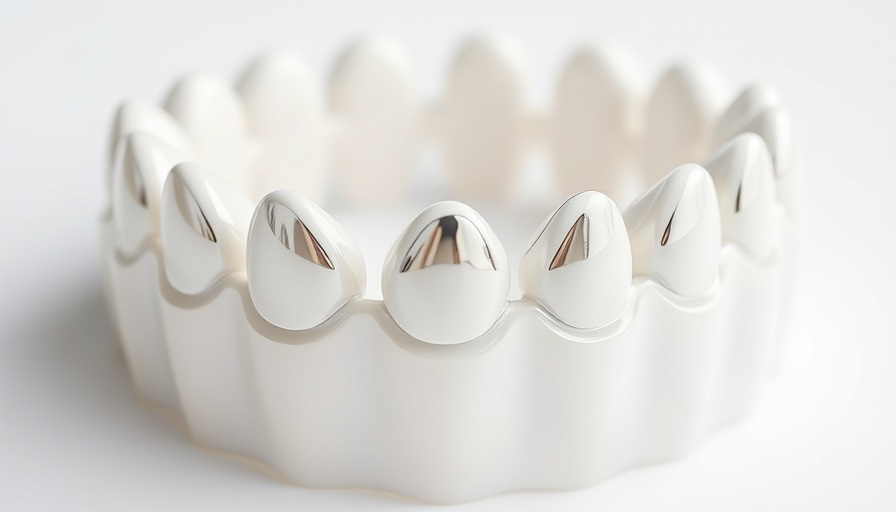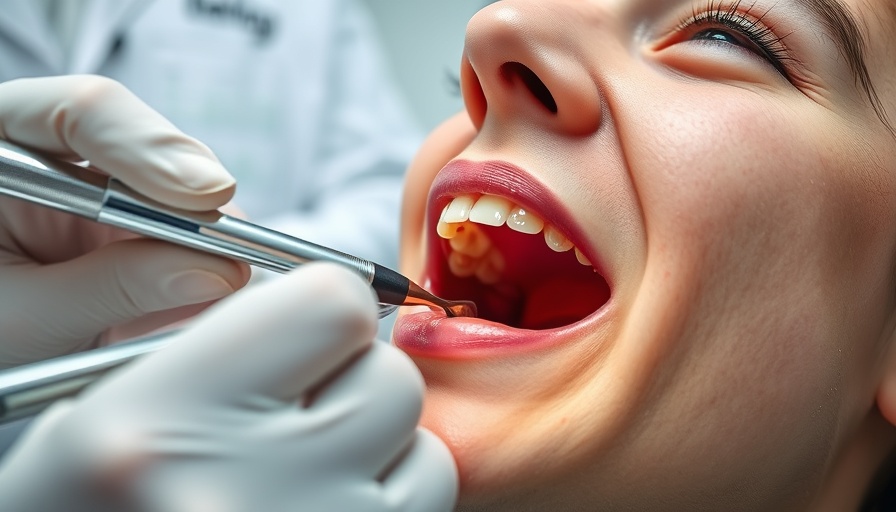
Discovering the Role of Dental Crowns in Tooth Restoration
Dental crowns are among the most effective and recognized dental restoration procedures available today. Especially in the UK, the use of crowns signifies a promising solution for various dental issues faced by adults, particularly those aged 40-70. Often made from materials like ceramic or porcelain, these crowns not only mimic the natural appearance of teeth but also provide the much-needed strength for compromised teeth.
When Are Dental Crowns Recommended?
Understanding when dental crowns are most beneficial is key to maintaining optimal oral health. For instance, when teeth suffer from extensive decay or breakage, a crown is often the ideal choice. Unlike fillings that can address smaller cavities, crowns cover and protect the entire tooth structure, ensuring durability while preserving your smile. This is particularly crucial for patients who may be experiencing significant tooth stress or damage.
Bridges and Crowns: A Solid Support System
Crowns also play a vital role in the placement of dental bridges. A bridge is utilized when one or more teeth are missing, and crowns anchor the artificial teeth in place. By reshaping the adjacent healthy teeth to secure crowns, a bridge provides a steadfast alternative to traditional dentures. However, some patients may hesitate at this approach, opting instead for dental implants that preserve the integrity of their surrounding teeth.
The Technical Aspect: How Implants and Crowns Work Together
Diving deeper into the technicalities, it’s essential to clarify what a dental implant entails. Although many refer to it as a single replacement tooth, it comprises three essential components: the implant (which integrates into the jawbone), an abutment (a connector), and the crown (the visible part that looks like a tooth). This tripartite structure ensures stability, function, and a natural look, with proper care promising over twenty years of service. Understanding this intricate relationship helps patients make informed decisions about their restorative options.
After Care: Ensuring Longevity of Your Dental Crown
The care and maintenance of crowns are critical in prolonging their lifespan. Regular dental check-ups, good oral hygiene practices, and attentive aftercare can significantly enhance the longevity of dental crowns. To ensure your investment yields long-term benefits, be proactive about your dental health. Research indicates that a dedicated aftercare routine can lead to remarkable outcomes—up to 80% satisfaction ratings among crown users.
Completing Root Canal Treatments
Another prime indication for the use of dental crowns is following a root canal treatment. When a tooth is infected, the procedure involves removing the infected pulp, which compromises its structural integrity. Placing a crown after a root canal not only restores appearance but also shields the treated tooth against further damage and decay.
Potential Myths about Dental Crowns Debunked
Despite their numerous benefits, many individuals hold misconceptions about dental crowns. One common belief is that crowns easily come loose or cause discomfort. However, advancements in dental technologies have improved crown retention and comfort significantly. Understanding the truth behind these myths can empower patients to make confident decisions about their dental care.
Why Knowledge about Crowns Matters
Being informed about the procedures surrounding dental crowns can lead to better treatment choices and improved oral health outcomes. As they become increasingly vital in restorative dentistry, knowledge allows patients to navigate their options effectively, creating a more satisfying experience during consultations. Moreover, the psychological aspect of knowing one has a reliable solution can enhance overall comfort and confidence.
Conclusion: Invest in Your Dental Health
The importance of dental crowns in restoring and maintaining oral health cannot be overstated. They serve as an indispensable tool for not only treating specific dental problems but also enhancing one's confidence and well-being. Regular discussions with your dental health provider can help you stay informed and proactive about your treatment options. Start taking charge of your dental health today and discuss the potential benefits of dental crowns with your dentist!
 Add Row
Add Row  Add
Add 




Write A Comment